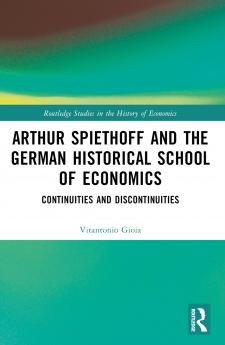English
Paperback
₹3655
₹5450
32.94% OFF
(All inclusive*)
Delivery Options
Please enter pincode to check delivery time.
*COD & Shipping Charges may apply on certain items.
Review final details at checkout.
Looking to place a bulk order? SUBMIT DETAILS
About The Book
Description
Author
<p>Arthur Spiethoff (1873–1957) an economist of the German Historical School of Economics is best known for his theory of the business cycle. Despite Spiethoff calling for a unified reading of his work his epistemological thinking has received less attention. This book addresses that gap by analysing Spiethoff’s theory of the business cycle in the light of his epistemological views. Putting Spiethoff’s work in context the book also investigates the most significant features of the evolution of the “research programme” of the German Historical School of Economics with particular reference to the relationships between Schmoller Sombart Weber and Spiethoff. In addition Spiethoff’s work is compared with some of the scientific orientations of the current debates: on the epistemological side the book examines the relationship between Spiethoff’s views and some contemporary thinking on scientific realism as well as methodological pluralism in social sciences. And more broadly it emphasises the analytical relevance of the historical approach in explaining the economic imbalances of contemporary capitalism questioning the idea widespread in the neoclassical approach that taking historical specificities into account makes it hard to achieve a theoretically effective attitude. This book is a significant addition to the literature on the German Historical School of Economics and the history of economic thought business cycle theory and macroeconomics more broadly.</p>
Delivery Options
Please enter pincode to check delivery time.
*COD & Shipping Charges may apply on certain items.
Review final details at checkout.
Details
ISBN 13
9781032148779
Publication Date
-29-09-2025
Pages
-228
Weight
-330 grams
Dimensions
-155.96x233.93x12.31 mm











